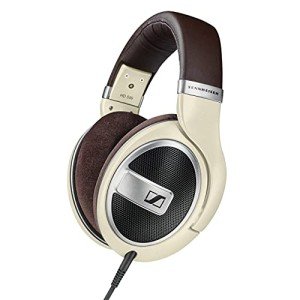15 Unexpected Facts About Audio Headphones That You'd Never Been Educated About

The Comprehensive Guide to Audio Headphones: Types, Features, and Recommendations
In an age where audio consumption has ended up being a common part of every day life, the value of high-quality audio headphones can not be overemphasized. Whether for music, video gaming, or expert usage, the right headphones can substantially enhance the listening experience.
Comprehending Headphone Types
When going into the world of headphones, it's necessary to understand the various types available, each accommodating numerous user requirements and preferences. Below is a contrast of some of the most common headphone types:
| Headphone Type | Description | Pros | Cons |
|---|---|---|---|
| Over-Ear | Big ear cups that enclose the ears. | Excellent sound quality; comfort | Large; not portable |
| On-Ear | Smaller ear cups that rest on the ears. | More compact than over-ear | Less sound isolation |
| In-Ear (Earbuds) | Small headphones that fit straight in the ear canal. | Highly portable; good sound isolation | Can be uncomfortable over long durations |
| Wireless | Headphones that connect via Bluetooth. | Wire-free convenience | Battery life is an issue |
| Noise-Cancelling | Active sound decrease innovation | Great for blocking background sound | Typically more pricey |
Picking the Right Type
Selecting the ideal type of headphone mostly depends on individual preferences and intended use. For circumstances, users who prioritize sound quality and convenience for long listening sessions might prefer over-ear choices. On the other hand, those looking for portability and convenience for commuting may lean towards in-ear models or wireless selections.
Important Features of Audio Headphones
While the kind of headphone is crucial, numerous other features and requirements can impact the general listening experience.
1. Sound Quality
Sound quality is arguably the most crucial function when thinking about audio headphones. The clearness, balance, and richness of audio can differ considerably based upon develop quality, materials, and motorist size.
2. Impedance
Impedance determines the resistance that headphones offer to the audio source. Lower impedance (below 32 ohms) appropriates for portable devices like mobile phones, while higher impedance (above 32 ohms) is normally preferable for studio usage with amplifiers.
3. Frequency Response
The frequency response describes the variety of sound frequencies that headphones can reproduce. A larger range (e.g., 20Hz-20kHz) is typically more suitable for music flexibility.
4. Convenience
Comfort is vital for extended use. Look for functions such as cushioned ear cups and adjustable headbands to make sure a good fit.
5. Battery Life
For cordless headphones, the battery life can substantially impact use. Many modern-day models use 20 hours or more of playtime on a single charge.
6. Construct Quality
The products utilized in constructing headphones can affect sturdiness and comfort. Look for designs with quality plastics or metals, and check for functions like foldability for simpler storage.
Suggestions for Different Use Cases
Here are recommendations customized for varying requirements:
For Music Lovers
Sony WH-1000XM4
- Type: Over-ear
- Features: Noise-cancellation, touch controls, 30-hour battery life.
For Gamers
HyperX Cloud II
- Type: Over-ear
- Functions: 53mm motorists, detachable microphone, virtual 7.1 surround sound.
For Travel
Bose QuietComfort 35 II
- Type: Over-ear
- Features: Exceptional sound cancellation, cordless, 20-hour battery life.
For Everyday Use
Apple AirPods Pro
- Type: In-ear (cordless)
- Features: Active sound cancellation, adaptive EQ, openness mode.
For Athletic Activities
Jabra Elite Active 75t
- Type: In-ear (cordless)
- Features: Waterproof, safe fit, 24-hour battery life with charging case.
Frequently Asked Questions (FAQs)
1. What is the difference in between wired and wireless headphones?
Wired headphones connect directly to gadgets using a cable, offering undisturbed audio without the need for batteries, while wireless headphones link by means of Bluetooth, using more liberty of motion but requiring battery power.
2. How do I tidy my headphones?
To clean your headphones, gently clean the ear cups with a soft, wet fabric to remove dirt and grime. For in- headphonesshop , you can separate silicone pointers and wash them individually.
3. Can I use my headphones while exercising?
Yes! Nevertheless, it's best to try to find moisture-resistant models designed for workouts to hold up against sweat and movement.
4. What should I think about when buying noise-cancelling headphones?
When purchasing noise-cancelling headphones, consider sound quality, convenience, battery life, and whether you need additional functions like ambient sound modes.
5. Are pricey headphones worth the financial investment?
While not all costly headphones ensure superior quality, higher rate points frequently show much better products, sound quality, and durability, making them worth thinking about for major audiophiles or experts.
Audio headphones have actually come a long way, providing a wide variety of alternatives to cater to varied requirements and preferences. Understanding the various types, vital features, and particular recommendations can help users make informed decisions.
When investing in headphones, consider how and where you will be utilizing them. With the proper understanding base, one can enhance their audio listening experience considerably, making sure that every beat, discussion, or sound effect is crisp and clear. Whether for individual enjoyment, professional jobs, or video gaming, the right headphones can make all the difference.

